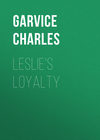Loe raamatut: «The Spider and the Fly»
CHAPTER I
A SWIM FOR LIFE
It is sunset; a dusky red is spreading out from the horizon and throwing a duskier reflection upon the sullen sea and its more sullen shore. A weird, awful shore it is, encumbered with huge rocks and strangely hewn stone.
A grim, shuddering waste, made grimmer and more terrible by strange, stray specks of humanity, that, seen in the falling sunlight seemed rather distorted creations of fancy than actual human beings; from stone to stone they pace, stepping with a peculiar, halting, laborious gait, and looking sullenly earthward as if their eyes were chained to the hateful, barren shore and the looking upward were death.
Look closer and gain fresh cause for wonderment. There is a strange likeness in these dim figures. They move alike, their gaze is directed sullenly downward alike, they are dressed alike. A sad, dingy, gray garment, half shirt, half tunic, relieved in all cases by a patch of crimson across the arm, upon which is stamped, in letters of black relief, a number. Their feet are shod with thick, heavy, iron-soled boots; a coarse, hideous cap is upon their heads, and the hair beneath it is cut almost to the skin.
The faces – ah, no! who could describe those faces? Who can speak of those crime-stamped brows, those passion-distorted lips, and those despairing eyes?
Listen! There is no sound but the sudden crash, crash of the falling stone that the coarse-grained hands are pushing, and the bent, gray-clad shoulders are heaving, from the quarries. One other sound still, heard only at intervals when the stone is silent, and that is the tramp, tramp of the sentries, who, like the figures of Death and Eternity in the old Roman temple, forever, day and night, march to and fro on the battlements, forever, night and day, keeping watch and ward on the terrible, gray-clad figures, that despairingly toil upon the barren plain below.
It is the convict station at Portland, and the figures are the shadows of some of England's vilest criminals.
The sun sinks lower, the warders, stationed at measured intervals between the various gangs, yawn with weary impatience and long for the sound of the prison bell. When that rings, which it will do within half an hour, the gangs will have finished their work for the day and the march for the gloomy prison upon the heights will commence.
The warders yawn impatiently, but the silent, gray-clad figures feel no impatience. They have nothing to long for, nothing to hope for.
One and all toiling on this particular plain toil on till death, and that has been longed for so long that it seems so far off as to be hopeless.
Death comes to men free and happy, but them it seems to avoid; it leaves them to their most awful punishment of life.
The quarter has chimed, the warders have grown more impatient, perhaps less vigilant, or does this tall, thin figure with No. 108 stamped upon his arm only fancy so? For he has broken the rule which says that no man shall separate himself from his particular gang, and is crouching behind a bowlder. Is he resting? His hazel, hunted eyes flash from the nearest warder to the sentinels upon the battlements. His hand grasps the chain at his leg to deaden its rattle as he glides along. His eyes drop from the sentinel and travel swiftly but keenly along the grim rank of the next gang. They rest upon one gray-clad figure numbered ninety-nine. His breath comes faster, he crouches until his breast touches the ground, and, though his lips are too tightly pressed for speech, his eyes seem to speak in the intensity of their gaze.
Perhaps No. 99 feels their gaze, for as he stoops with the gang to heave the hard, cruel stone he lifts his small, villainous eyes and sees the dark, piercing ones fixed so earnestly upon him. A start, imperceptible, thrills through him, and, as he raises his shoulder, he contrives to lift one hand as a signal that he has seen and understands.
No. 108 seems satisfied, he drops his eyes with a sigh, and waits with sullen impatience.
The stone is upheaved. The gang moves round and pauses to gain breath.
A few of the miserable figures drop upon the stones.
No. 99 flings himself sullenly upon the stone behind which crouches No. 108, and so effectually conceals the piercing eyes from the warders' catlike vigilance.
"Jem," says a low, hoarse voice from below the stone. "Can you hear me? Don't turn your head, and speak low."
"I hear," replies No. 99, with a hoarse voice.
"Jem, there's a chance; don't start or I'll kill you. There's a chance, but it wants working. I've been wanting to speak to you for six weeks. Warder No. 24 drinks like a fish. He'll be drunk to-night – to-night at seven. I've the stuff in the corridor. Our cells are opposite. He carries the keys in his breast pocket. At half-past seven to-night, Jem, he or I will be a dead man. You know me and my stroke. If I can get a clear blow with the iron jug and without noise we are free. Once in the corridor with his keys, we can gain this cursed cliff. Don't speak – he's looking this way! The tide comes in at ten; we must swim for it – go this minute, or we are lost."
A warder leaps along the stones; No. 99 rises as if rested; No. 108 crawls like a serpent back to his proper gang.
Crash, crash, the last stone is lifted for to-night; the bell chimes the hour, the gangs form with listless, weary sullenness into lines, stalwart warders, well armed, order them sternly to march. Another dreary, hopeless day of toil is done.
The sun has sunk, the red glow has left the sky, darkness has fallen upon the surging sea and barren shore.
The tramp of the sentinels can just be heard above the rattle of the falling beach. It is too dark to see them, but two figures are crawling under the beetling cliffs, they crawl hand in hand, fearful of losing each other for a moment. Not a word is spoken, their movement makes no sound. Five, ten, twenty minutes pass, and then they stop and draw long, husky gasps of relief.
"Jem," says one, "where are we?"
No. 99 shakes his head and peers into the darkness.
"Under the cliff," returns the other. "Right under the guardhouse, I think; if so, far enough."
"Quite far enough, captain," is the hoarse reply. "And now we are here, what's the next move?"
The other remains silent for a moment, while he fumbles at his leg, then touches his breast and face.
"What's the matter, guv'nor, are you hurt?"
"A little," is the reply. "I'm bleeding like an ox."
No. 99 emits a grim, guttural laugh.
"There's enough of that with both on us," he says. "It's like our luck as the beast should turn. I thought you'd struck him straight, too, guv'nor."
"So did I," is the curt retort. "No matter; we are here and that's luck enough."
"But we can't stop here."
"We must till the tide's up, and it's coming now, half an hour and the fishing yawls will be in front of us."
His companion shudders.
"The fishing yawls!" he repeats. "D'ye mean we're to swim for them, guv'nor, through this, in the pitch dark? Why, it's death!"
"Or freedom. Death! Jem, my man, you're worse than an idiot. What's the name you'll give to what we've left behind us? If that's life, we take death, Jem, and be thankful for it."
As he speaks, with a bitterness beyond description, he stoops and fumbles at his leg again. The sharp ears of his companion catch the grating of steel on iron.
"What's that, guv'nor?"
"A file," was the reply.
"Where did you get it from?" asks the other, with undisguised astonishment.
"I made it, Jem," replies his companion, quietly.
"What with?"
"An old piece of iron and my brains. It's a good one; try it for yourself."
As he speaks, he shakes the horrible link of iron from his foot and passes the instrument to the other.
No. 99 takes it, with a muttered oath.
"You're a wonderful man, captain, a wonderful man. There ain't nothing as you can't do – or won't do if we gets clear of this frightful torment. I'll be sworn, the game's all planned out a'ready."
"It is," replies the other, with quiet coolness.
The grating of the file stops for a moment.
"I thought so! S'help me, if I didn't! Might a humble pal, as has always stood by you, captain, ask what the move is? It 'u'd pass the time away and keep the shivers off. There's a curse in the very air o' this place that cramps a man's heart and a'most chokes him. Tell us the plot, captain. I'm yourn, and you know it."
The captain looks into the darkness before him in silence for a moment; then, speaking in the whisper above which their voices had never for a moment been raised, he says:
"I'll tell you, Jem, as we swim together, as you say. We must, taking all things into consideration, and so – Jem, give me your hand."
The man he called Jem feels about in the darkness until his hard-grimed hand is clasped in the softer one of his companion, and waits silently.
"I'm going to take your oath," says the captain, coolly. "Swear that you'll follow me faithfully – as, to give you your due, you always have done – right to the end of what is to come. Swear it, Jem, and I'll open up the game. You'll keep your oath, I know, because I'll swear at the same time that this hand of mine shall wring your neck if you break it. You swear?"
"I swear, captain!" replies Jem, hoarsely. "I've never played you false yet, captain. Would it pay me to do it now after this little bout? Would it pay me, I asks yer?"
"No; now nor ever. Come closer; these cursed cliffs seem to me to have ears. Keep a look out all round. I'm watching for the lights of the fishing yawls."
"All right, captain," replies the other, eagerly. "Go on, if it's only for talking's sake," and he shivers under the strain of long-sustained fear and excitement.
"You're right, Jem, I have a game on the board already. It wouldn't be me if I hadn't. It's a good game, too, and worth playing. Better than the last, which landed us here – not so risky, either. Did I ever tell you where I came from? No? Well, it isn't likely, when I come to think of it. I am not one of the communicative sort. What do you say to India – to Madras? I am a captain, Jem, by something more than courtesy. Captain Murpoint's a good enough name and title, and they're my real ones. They'll do again, too."
For a moment he relapses into silence, his eyes scanning the sea before. Then he takes up the thread again, in a tone rather of soliloquy than communication; but his companion, though apparently forgotten, listens eagerly.
"Five years ago I was the most popular man in Madras. You cannot understand all that short sentence means, my friend; no matter. I was a rich man – as men went – and could count friends by the score. If there had been fewer friends and less whist I might not have been here; who knows? No one, and no one cares; not even I myself. Madras! I see it now. Bah! A high-flown description of the presidency would be lost on you, Jem, and it is a rule of mine to waste nothing. At Madras, among the host of friends, some of whom plundered me, and some of whom I had the extreme happiness to plunder, was one, the best and bravest of the lot, John Mildmay – "
"John Mildmay," repeats the man, Jem, to show his companion that he is listening carefully.
"John Mildmay, a merchant, a prince among merchants, with a fortune in England, India – and I know not where else also. He was a fine fellow, but simple – simple as a schoolgirl, and too bountifully supplied with those awkward incumbrances called feelings. We were bosom friends. I borrowed his money, and he loved me too well to remind me of the debt – you understand that, Jem – that is something within your comprehension."
Jem chuckles with hoarse enjoyment.
"He made me his confidant – told me everything of his own affairs and a great deal of other people's. He had a daughter. I remember her name – Violet. Beautiful, he said she was; but that goes for nothing. I'll be bound, my friend, that you would have called a bantam of your own, though it copied every one of your extremely plain features, a swan. The mother was dead, there was only one relation of any consequence – an aunt, and Jack Mildmay loved this little girl better than he did me – and that's saying a good deal. One night – when we were sitting in the veranda of his mansion on the hills, watching the Brahmins at their prayers, he declared his intention of making me the sole guardian of this girl. He prayed me – if anything happened to him – to be a second father to her, or at least a brother, considering that he was so much older than I. I swore – readily enough – that I'd watch over her like a guardian angel, and, after drawing tears from him by my fervid eloquence, delicately borrowed a hundred pounds. Poor Jack! we never saw each other again. A special messenger arrived that night with news from England. His business – an enormous one – required his presence to tide over an emergency, and with a hasty handshake, he left me, reminding me of my promise, and declaring his intention to draw up on parchment the declaration of his wishes as to my guardianship over his daughter.
"'Good-by, old fellow,' he said. 'It's a long journey; but I feel safe. I've written about you in every letter to my little darling; I shall be able to tell her now what a grand guardian she'll have. Good-by, and Heaven bless you!'
"Jem, my friend, don't believe the good people of this world when they talk of a special providence for honest men; Jack Mildmay was drowned on that homeward voyage, and I, Captain Howard Murpoint, was left to live and rot in a convict station.
"Yes, the ship went down, and soon after Captain Howard Murpoint went down likewise. I got tired of the army; that's the mild way of putting it, though if the truth must be spoken, the army got tired of me – or rather my wonderful luck at cards. You know my little trick with the ace? Enough. It suited me to cut the military life. How was I to do it? A fool would have deserted and got shot. I, not being a fool, managed differently. There was a slight skirmish on the frontier one moonlight night. My men were cut to pieces like packthread. I, by a miracle, escaped. Walking over the corpse-strewn field, one of those happy thoughts which are the inspiration of knaves, struck me. My corporal, a good fellow, had fallen at his post. I knew it was my corporal by his accoutrements, his face and features had been obliterated by a cannon ball. Supposing, was my thought, that Captain Howard Murpoint's regimentals were upon that poor fellow, then every one would say that the said Captain Murpoint had fallen with glory and honor, and that the missing corporal had either been carried away by the Sepoys or deserted.
"Jem, my friend, I lost not a moment, but there and then exchanged clothes with the corpse, threw a cloak over my new corporal's regimentals and started for the coast.
"I reached Paris – unfortunately for the Parisians. When Paris grew too hot I gracefully fluttered to my native land. My native land for eighteen months proved as rich a harvest as a man of talent could wish.
"During those eighteen months I cleared – no matter – it is all gone, swallowed up in that fiasco. Idiot that I was to descend to the level of such poor vermin as you! What could I expect? Were these hands made for burglary, were these brains? Bah! this is wasting time. Some sweet friends of yours persuaded me to change my line, and I came to grief; dragging you in for revenge's sake. Plain truth, you see, Jem. I scorn to tell a falsehood – when there is nothing to be got by it. Transportation for life! It was a hard sentence, and I wished when I heard it, and a hundred times since, that they had not balked Jack Ketch. I wished it every day till a week ago.
"What changed me? A mere bagatelle. A newspaper. A year-old newspaper, which that lout of a warder had dropped from his pocket. I snatched it up and hid it in my bosom. It would lighten many a hateful hour in that horrible cell. I opened it next morning, and the first words my eyes rested on were:
"'Grand Fête at Mildmay Park, Penruddie. – On the occasion of Miss Mildmay's sixteenth birthday a large party of personal friends and the tenants of the Mildmay estate was gathered at the Park, where most extensive preparations have been for some time in progress to insure success for the various festivities. In the morning the numerous gayly dressed visitors gave themselves with a zest to the enjoyment of archery, boating and the subtleties of croquet. In the evening the grand hall – which was decorated by Owen Jones – was opened for a ball to which invitations to the number of two hundred had been issued. It is needless to say that the whole affair was brilliantly successful, and that the twelfth of July will be a white stone in the lives of Miss Mildmay's tenants and those fortunate friends who were enabled to partake of her hospitality. Miss Mildmay is at present staying, in company with her aunt, Mrs. W. Mildmay, at her residence, Mildmay Park.'
"That is something like it, Jem – all glitter and sparkle, diamonds and rubies. I swear, much as I reveled in that greasy paper a moment before, I could not read another line of it. Every time I tried my eyes looked back to Mildmay Park and the wealthy Miss Mildmay.
"This Violet was to have been my ward, and Jack's money, his enormous estates, ay, the very diamonds she wore, were to have been under my charge. What an opportunity I had lost! With such a chance, what might I not have accomplished? I might have feathered my nest, ay, have filled it even, with every penny of Jack's gold; for what was a puny little bit of a girl to count for? – if I had been free. Free! that was the word, and it haunted me. One day it rang in my ears, making a chorus to the grand doings at Mildmay Park, and at last I swore that I'd give this place the slip or die in the attempt. Once away from here – once in England, the way to Jack Mildmay's gold is as plain as the road to Rome. I am once more Captain Murpoint. I turn up, looking the gentleman that I am, at the Park in the character of her father's friend. She knows all about me, remembers me almost as well as she does her father. Keeps all his letters, those letters in which he tells her that he is hunting, fighting, playing, or dining with his dear Murpoint, on her bosom, perhaps. Here is dear Murpoint, and she welcomes me to Mildmay Park with open arms and a shower of tears."
There was a moment's pause; Jem crept closer to the daring schemer.
"And me, captain? You won't forget me?"
"No; you go with me as my servant. No thanks. I shouldn't take you if I didn't want you, my friend. I never did a generous action in my life, I leave that for idiots. I want you for a hundred things. I want a man who is completely under my thumb – in my power. You are in both those situations, so I help you to escape and take you with me. If you have any gratitude, keep it bottled up, don't let it evaporate in words. Well?"
The man mutters something, faintly.
"But, captain, is that all the game? Don't we hold no more cards than that? It seems a chance, a regular chance."
"And what else is life?" says the captain, with a short laugh of contempt. "But those are not all the cards. Even to you, my bosom friend, I do not choose to show my whole hand. Enough that I hold sufficient cards to play the game, and that I have sufficient brains to win it. You, my poor Jem, have neither cards nor brains! Stop! what's that?" and his low, subtle voice sinks to a sharp hiss.
"That's the light of the fishing smack," hoarsely returns his companion.
"Not that, idiot!" is the retort, in a sharper voice. "That up above. A thousand fiends! It is the moon!"
A smothered cry breaks from the parched lips of the convict Jem.
He springs to his feet, then falls to the ground with a quiver of excitement.
"Captain, we are lost! In two minutes it will be like day! The soldiers can see every speck on the water for a mile round!"
"Silence!" cries the captain, crouching so motionless that his gray-clad figure looks part and parcel of the rock against which it presses. "The tide is in. That is the smack before us. Swim like the fiend! If we reach it we are safe. I have enough to bribe them. Swim for liberty and life! – now!"
And, with the word, he rises to his feet, leaps over the patch of beach that intervenes between cliff and sea, and plunges into the foremost wave.
His companion follows, and not a moment too soon.
The moon that had been battling with the dark mass of clouds, rises conqueror at last, and swims majestically into the clear heavens, lighting up the sea till it glows like a plain of diamonds.
Not a moment too soon, for the monotonous tramp, tramp of the nearest sentinel upon the ramparts above is suddenly broken, and his sharp voice gives the challenge:
"Who goes there?"
For answer the moon shoots a bright beam of light full upon the dark figures swimming toward the smack.
With a shout of alarm, the sentinel brings his musket to his shoulder.
"Dive!" hisses the white lips of the captain.
Crack! ping! and a bullet cleaves the air.
Another moment, and the rampart is alive.
Lights flash to and fro, showing up for a moment the excited faces of the soldiers.
Shouts of warning and anger break through the silence and affright the seagulls.
Then an officer's voice rises above the din.
"There they are, close by the smack! Ready – present! – fire!"
Crack! crack! crack!
"Ah! that's got them! There they go – eh, what? couldn't see them?" says the commandant, angrily, repeating the hesitating suggestion of a subordinate that the moon was obscured and that he couldn't see the men as he fired. "Nonsense! You winged them right enough. Anyway, we must say we did. There have been too many escapes lately to allow of any more. We shall have the authorities down upon us for negligence. It's a singular thing that I can't run down to the town to get a rubber at whist but that somebody must go to sleep. It isn't often I take a little pleasure, but sure as I leave my post for an hour or two some foolhardy or sleepy-headed warder lets one of those vermin get away. There's warder No. 24 got his back broken, and the Lord Harry knows what. Serves him right! It must be hushed up, mind! There have been too many escapes lately by far. If there's any inquiring, mind you winged them twice, and they are dead as nails at the bottom of the sea."
The sentinels give the salute, and the officer starts off to finish the interrupted rubber.
Next morning the official whose business it was to draw up such statements reported that convicts Nos. 108 and 99 had attempted escape, but were shot down by the sentinel while swimming toward a fishing smack.














